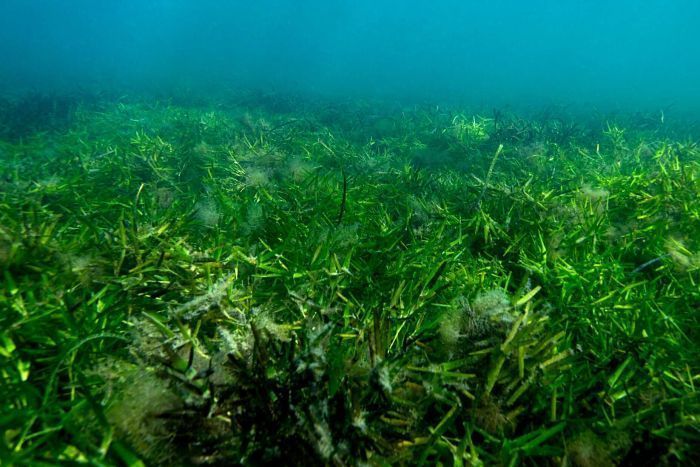
Hub researchers are working with Malgana Traditional Owners to assist the natural recovery of seagrasses affected by climate change at the Shark Bay World Heritage Area.
Shark Bay on the north-western coast of Western Australia is a refuge for many globally threatened species of plants and animals. The large temperate seagrasses Amphibolis antarctica and Posidonia australis have been historically dominant, creating persistent meadows of some 4000 square kilometres. They are also responsible for the accumulation of the Wooramel Banks, limiting water exchange with Hamelin Pool and creating the hypersaline environment suitable for the most diverse and abundant examples of stromatolites (hard, dome-shaped structures formed by microbial mats) in the world.
In the summer of 2010–2011, Shark Bay's seagrasses were devastated by a marine heatwave and sediment deposits from the flooding Wooramel River. The heatwave caused extensive defoliation and rhizome death of A. antarctica, one of the bay's 13 species of temperate and tropical seagrasses, and ongoing disruption to the ecosystem. Valuable scallop and blue swimmer crab fisheries were closed and sea snakes, dolphins, and culturally significant species such as green turtles, dugongs, and cormorants experienced large declines.
Joining hands with the Malgana Indigenous community
Together with the Shark Bay Malgana Indigenous community, Hub researchers are developing seeding and shoot planting methods to assist natural recovery of seagrasses in preparation for future devastating impacts of climate change. The immediate goal is to scale up the existing restoration research to assist recovery of A. antarctica and P. australis.
Malgana rangers and researchers have snorkelled and collected A. antarctica seedlings together at a Shark Bay trial planting, with rangers sharing memories of being on the water with their uncles and grandfathers, and scientists explaining their studies of seagrass lifecycles, flowering, seeds and seedlings. Future work in collaboration with Traditional Owners will involve trialling transplanting and seeding methods, developing nature-based solutions to climate-change related seagrass loss, and planning an ‘Arts meets Restoration Science’ Seagrass Festival in Denham to celebrate and share the environmental and cultural knowledge.
Related information
